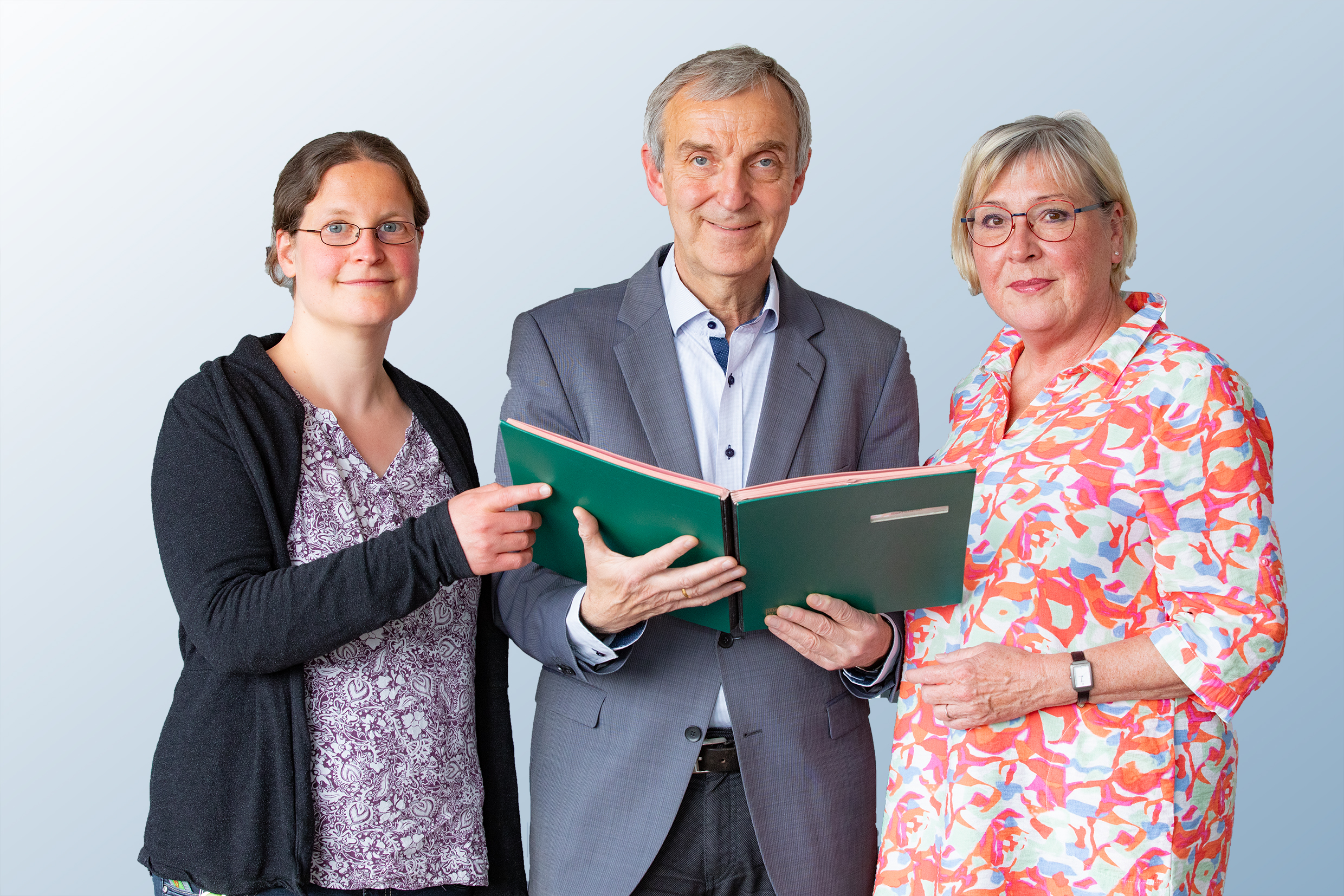Dr Beate Schwinzer is handing over the baton to Dr Olga Halle.

Ombudsperson Professor Dr Thomas Werfel is pleased about the continuity in the ombudsman system: Dr Olga Halle (left) is taking over the management of the office from Dr Beate Schwinzer.
For nine years, Dr. Beate Schwinzer has been advising students and researchers at MHH on issues of good scientific practice (GWP). Since 2016, as head of the Ombuds Office, she has been the first point of contact for all concerns, questions and conflicts in this area. On 1 July, the immunologist will now pass the baton to her long-standing colleague Dr Olga Halle. The change at the top is a seamless transition. ‘Dr Schwinzer has trained me thoroughly so that I can take over all tasks without any problems,’ says the infection biologist. Ombudsperson Professor Thomas Werfel, Director of the Department of Dermatology, Allergology and Venereology, is also pleased about the continuity in the succession plan: ‘The competence of the office is guaranteed, as the new head also comes from the scientific community and is familiar with the issues.’
Strict confidentiality
Nationwide, only twelve other universities and research institutions besides the MHH have their own ombudsman's office. ‘We support and relieve the Ombudsperson, investigate the plausibility of suspected scientific misconduct together with the Ombudsperson as part of the preliminary investigation, advise in cases of conflict and hold workshops on good scientific practice,’ explains Dr. Schwinzer. Scientific misconduct includes, for example, falsifying data or appropriating the intellectual property of others without authorisation – such as in cases of unauthorised or withheld authorship or theft of ideas. However, good scientific practice also includes documenting results correctly and supervising PhD students responsibly. ‘We treat all concerns brought to our attention as strictly confidential,’ emphasises Dr. Halle. ‘If problems cannot be resolved at the office or if suspicion of scientific misconduct is confirmed, the Ombudsperson takes over.’
Standards in research
The advice is based on the guidelines of the German Research Foundation and the recommendations of the German Rectors' Conference for ensuring good scientific practice. The MHH has implemented the general GWP code in a legally binding statute that is tailored to the MHH in every detail. ‘Many mistakes are not made intentionally, but rather due to uncertainty, ignorance or pressure,’ says Professor Werfel.
‘The ombudsman service provides professional advice and support to ensure that research standards are upheld and that researchers are made aware of the GWP rules.’ While the number of allegations of plagiarism has declined in recent years, questions about data management have become increasingly important. A number of inquiries also concern supervision problems with superiors – for example, because a doctoral thesis is taking longer than planned. Others concern authorship, especially when researchers feel that they have not been given sufficient credit in planned or already published publications. The Ombudsperson then mediates between the parties involved, ‘neutrally, objectively and as solution-oriented as possible,’ as Professor Werfel emphasises. If no agreement can be reached, the Ombudsperson recommends that the President initiate a formal investigation by the GWP Commission. ‘But fortunately, that is rarely the case here.’ Professor Werfel has been Ombudsperson at the MHH for more than ten years. His term of office ends in September 2025 in accordance with the statutes. The Senate will then elect a new Ombudsperson. Professor Werfel will then support them as deputy, as stipulated in the GWP statutes.
Text: Kirsten Pötzke